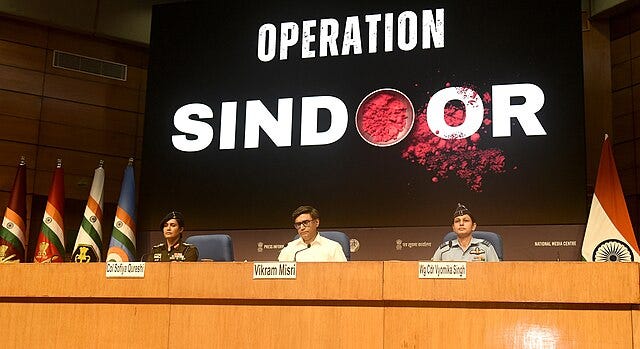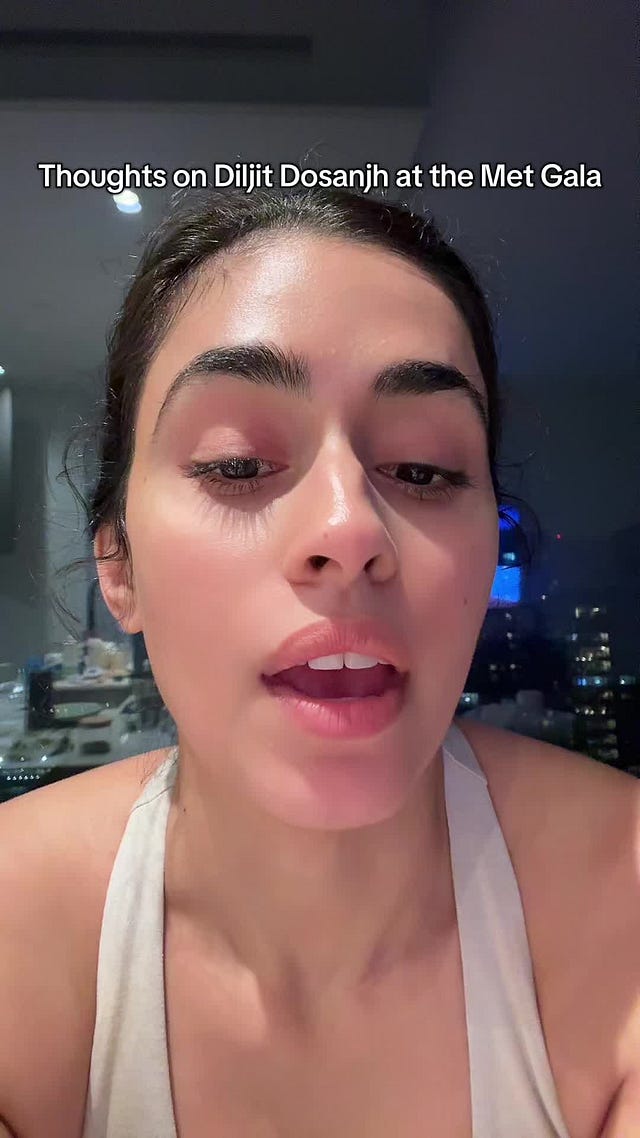India, Pakistan, and the Met Gala: What South Asians in the U.S. Are Saying
How Indians and Pakistanis in the US feel about a potential war and shortcomings at the Met Gala
South Asian communities in the U.S. are feeling uneasy after India and Pakistan narrowly avoided war following weeks of heightened confrontation.
The tensions began after an April 22 terrorist attack in Pahalgam, Kashmir, where militant groups targeted Hindu tourists, killing 25 people in cold blood, including one individual who was Christian. India blamed Pakistan for orchestrating the attack through state-backed militants, while Pakistan denied the allegations and called for an independent investigation. India responded with a series of airstrikes across Pakistan, and Pakistan retaliated with similar aggression. Cross-border skirmishes and retaliatory strikes have since claimed over 66 lives. On Saturday, President Trump announced both countries have agreed to a ‘full and immediate ceasefire.”
For many from the region, this animosity is nothing new, especially for those familiar with the filmography of both countries, where nationalist and anti-neighbor narratives are common. But for many Indians and Pakistanis living in the U.S., the experience hits differently.
“We’ve always been seen as enemies,” said Harsh Gul, a 32-year-old U.S.-Indian resident who messaged us via TikTok. “But growing up here, I never really felt that hatred. What I have felt, now that more people are talking about this in the US, is that nobody really knows anything about who we are.”
Throughout our TikTok videos covering India and Pakistan, we observed a troubling pattern of ignorance and insensitive language in the comments section.
“Honestly, if it takes out all the spam call centers, I’m for it,” one user wrote. “You’re really going to pretend these people don’t smell like curry, BO, and wetsocks.”
Gul, who follows our TikTok, said he saw this kind of language not just on our page but across other accounts covering the conflict. He was “upset” but not surprised, pointing to the lack of South Asian representation in U.S. media, whether in politics or Hollywood.
This absence was especially noticeable at this year’s Met Gala, Gul said, where fewer than 8 South Asians were in attendance, despite having a combined social media following of nearly 74 million. South Asians on TikTok were quick to express frustration that Met Gala personnel failed to acknowledge the significance of Shah Rukh Khan, one of the world’s most influential people (TIME) and widely known as the “King of Bollywood,” as well as Diljit Dosanjh. Both were allegedly cut away from during their appearances on the Vogue live stream.
“My heart broke by how quickly the camera panned away from him,” Jasleen Singh said in a TikTok video that has over 128,000 views. “I understand that a lot of people in the United States and the photographers and the journalists might not know who he is, but that doesn’t mean that he’s not as significant as the other people.”
Vogue told The New York Times that any livestream omissions were “certainly not intentional,” and some critics argue that high-profile events like the Met Gala are simply too chaotic to give every moment the attention it deserves. But for Gul, the issue runs deeper. He believes that true representation requires intentionality—and that it’s the responsibility of both political and entertainment media to provide meaningful context.
“I think the media has failed people who look like me, and who are from our countries,” Gul said. “I grew up in an era where I had to explain to people my history. I wish we were brought up more often when there is a war. And when we are here, you acknowledge the history that is being made for nearly a billion people around the world.”







